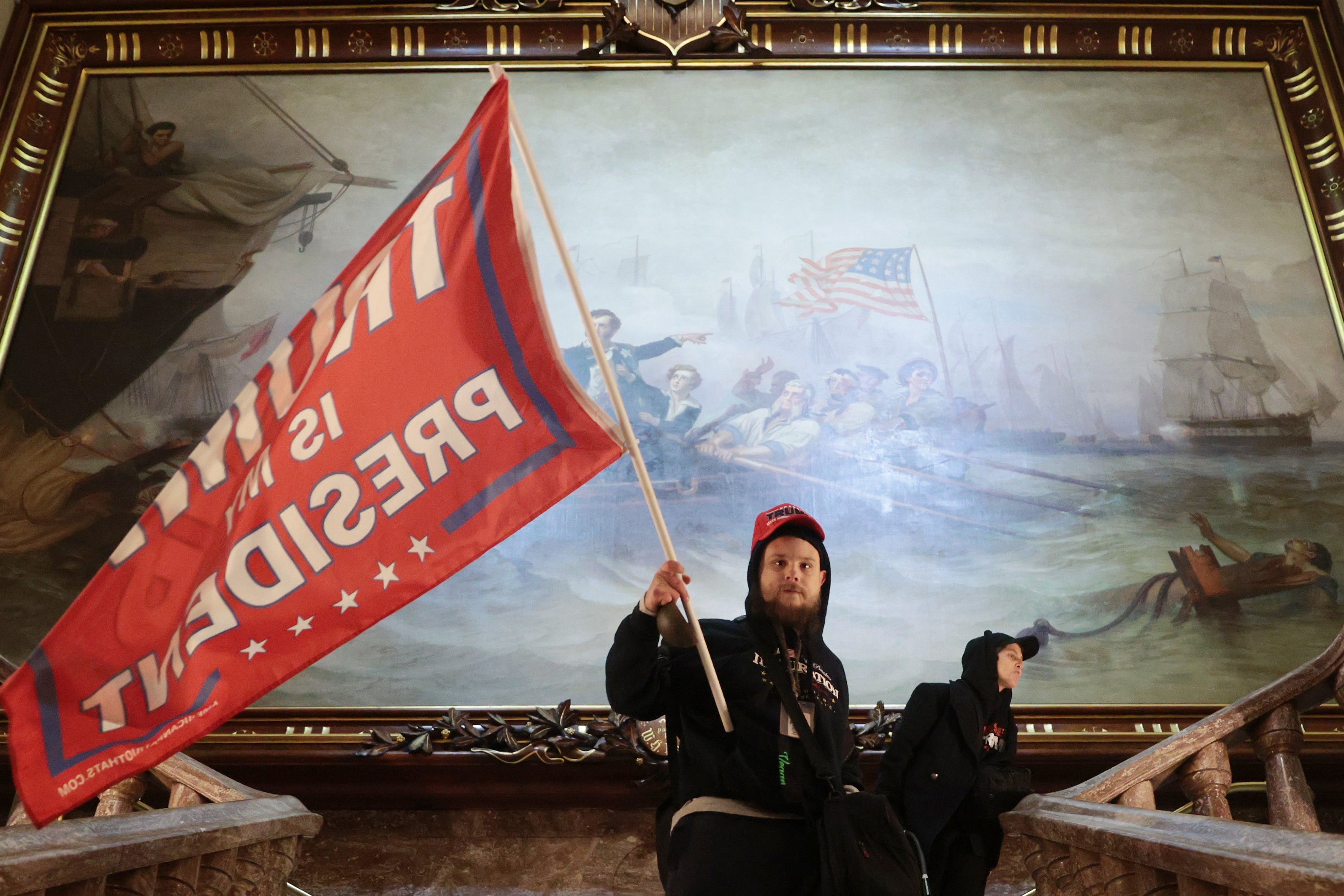This is the last time the Capitol was breached
British troops burned Capitol building and White House in August 1814

Before Donald Trump’s supporters overran the Capitol building on Wednesday afternoon, it had not been breached for more than 200 years.
In August 1814, however, it was not US citizens who were attacking their own government’s property but British troops who had captured Washington with little to no resistance before setting the Capitol ablaze.
Furniture and Library of Congress books were used as fuel and the building was severely damaged, according to the Architect of the Capitol.
The Executive Mansion – the previous name given to the White House – was also gutted by flames and so was the city’s naval yard.
Britain said the arson came in retaliation for the burning of York (now Toronto) by the Americans the previous year.
Follow live updates from DC and beyond
Both events occurred in the so-called War of 1812, which started when American soldiers invaded Canada, then controlled by the British.
Declaring war while Napoleon was marching on Moscow, the US had incorrectly assumed that France would defeat Britain in the Napoleonic Wars.
Following the French leader’s defeat and abdication in 1814, the British trained more of its resources on the US, sending a party of 4,000 soldiers across the Atlantic to make life difficult for the Americans.
Andrew Lambert, a professor of naval history at King’s College London, tells The Independent that the war, much like Wednesday’s riots, showed divisions in American society.
While the war effort received the support of the newly elected Congress in 1812, the north and east of the country were against it. “The war exposes – and this I think is very relevant – fundamental divergences between different sections of American society,” Mr Lambert says, explaining that it paved the way for the Civil War.
He adds that after the US lost the War of 1812 “quite badly”, American leaders embarked on a propaganda campaign, filled with “nationalist nonsense” such as the description of the hostilities as a second War of Independence.
“Does that sound familiar?” Mr Lambert says in reference to Mr Trump’s attempt to twist his election defeat into victory.
In fact, these two efforts to repaint history were pictured side-by-side on Wednesday, when one rioter was photographed waving a Trump flag in front of an enormous 19th century artwork inside the Capitol building.
The William Henry Powell painting depicts the US victory at the Battle of Lake Erie in September 1813, one of a few naval successes that featured prominently in American accounts of the conflict.
Returning to the violence in Washington on Wednesday, Mr Lambert adds one more historical message: that the rioters’ actions constituted a “visceral reaction from a group who feel that the tide of history is against them”.
Join our commenting forum
Join thought-provoking conversations, follow other Independent readers and see their replies
Comments
Bookmark popover
Removed from bookmarks